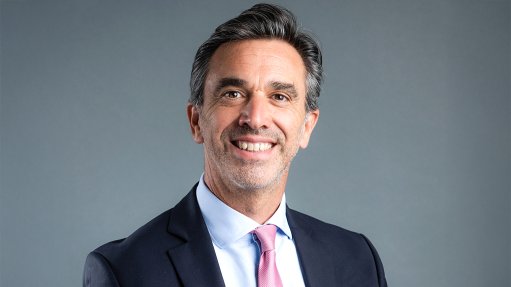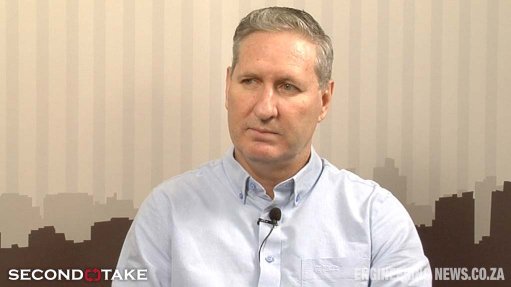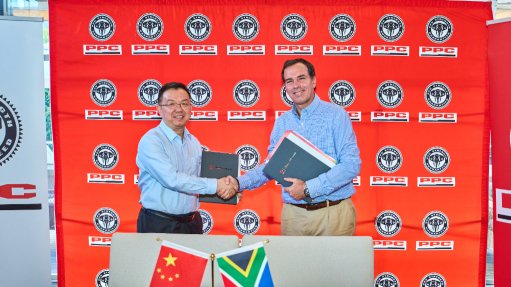Exploring The ‘Great Unretirement’
This article has been supplied.
By ManpowerGroup South Africa Managing Director, Lyndy van den Barselaar
The life cycle of work has shifted exponentially since the COVID-19 pandemic – from the Great Resignation to the Great Reawakening, through the Great Reshuffle and on to quiet quitting and quiet hiring – and now, the world is experiencing the 'Great Unretirement'.
As younger people find new ways to work, a gap in traditional employment needs to be filled – and 'unretirees' are stepping back into the workforce. Some are returning to work out of necessity, while others simply miss having a job to go to. According to Sanlam’s 42nd Benchmark™ Survey Report, one in five South African consumers believe they may never be able to retire, and 42% said they felt a sense of insecurity or lack of control over their financial future and will simply have to keep working past the expected retirement age. With many South Africans inundated with the constant rise in the cost of living, less than a staggering 10% of retirees will be able to maintain their standard of living before retirement.
Ageing Population
The global population is getting older, primarily because of increasing life expectancies and declining birth rates. In 2020, more than 147 million people worldwide were between the ages of 80-99, accounting for 1.9% of the global population. The same demographic accounted for merely 0.05% of the population in 1950. In 2020, the number of people aged 60 and older outnumbered children younger than 5. Between 2015 and 2050, the proportion of the world's population over 60 years will nearly double from 12% to 22%. Our world has a notably higher percentage of older people than 70 years ago – a trend that will continue.
One of retirement's perils is a decrease in social activity rather than an increase. ONS data published in the UK in December 2022 showed 46% of over-50's
would return to work for social reasons; 42% would return to improve their mental health, while many have returned from a long-term illness that previously forced them to leave with unfinished business – while others simply desire a return to a more social space after the two-year lockdown-enforced isolation from which many have yet to emerge fully.
Working Better
The picture to be painted, though, is not one where we're all forced to work deep into our dotage. Working for longer means that the workplace environment will change, and the opportunity to mentor younger workers exists. Older workers are skilled and experienced, bringing critical thinking skills and in-depth knowledge that cannot be taught, where the perceived technology gap is more easily overcome. They require less training, are more reliable and have a stronger work ethic than younger workers. They play a crucial role in retaining a business's knowledge and established networks while fostering younger workers in more nurturing multi-generational teams.
The onus, then, is on companies to create an inclusive, fair and meaningful experience for older and younger employees. If they manage that, they will not only become more innovative, engaging and profitable over time, but they will also benefit society at large. A Deloitte study showed that bringing age diversity into a company's DEI programmes delivers more age-diverse teams, in which all members feel more psychological safety and innovative than in age-biased teams. Age brings teams a sense of security and wisdom so that companies can use it to their advantage.
Adapt and Fly
Organisations must also adapt to this phenomenon by reintegrating skilled older workers into the workplace and attracting more once they see the value. Aspects like more traditional titles and roles, or those which reflect their seniority as mentors for younger workers, can help them feel valued. Being accommodating with flexible work hours or locations can also be a bonus. This also includes offering more accessible workstations at home or in the office, with more light, larger fonts and other things that can help accommodate the needs of people of all ages.
Looking at pay equity by job and level rather than tenure is important. Tenure is not a useful measure for determining pay scales unless it directly translates into experience and skills that drive value to the company. If an older worker is returning to work in a new role, it should be more than ok – indeed, fair - for them to make less money than a younger person. On the other hand, those returning to their former positions need to be empowered with managerial, supervisory and mentoring roles, which will let them leverage their years of expertise for the team and the company's benefit. The opposite is true, too, with younger leaders able to reverse-mentor older team members to help integrate them and usher them into a world with very new ways of working.
Respect for elders is a fundamentally-entrenched aspect of South African culture - and there's no reason we shouldn't show the same respect for their experience and knowledge in the workplace for better business functioning.
Comments
Announcements
What's On
Subscribe to improve your user experience...
Option 1 (equivalent of R125 a month):
Receive a weekly copy of Creamer Media's Engineering News & Mining Weekly magazine
(print copy for those in South Africa and e-magazine for those outside of South Africa)
Receive daily email newsletters
Access to full search results
Access archive of magazine back copies
Access to Projects in Progress
Access to ONE Research Report of your choice in PDF format
Option 2 (equivalent of R375 a month):
All benefits from Option 1
PLUS
Access to Creamer Media's Research Channel Africa for ALL Research Reports, in PDF format, on various industrial and mining sectors
including Electricity; Water; Energy Transition; Hydrogen; Roads, Rail and Ports; Coal; Gold; Platinum; Battery Metals; etc.
Already a subscriber?
Forgotten your password?
Receive weekly copy of Creamer Media's Engineering News & Mining Weekly magazine (print copy for those in South Africa and e-magazine for those outside of South Africa)
➕
Recieve daily email newsletters
➕
Access to full search results
➕
Access archive of magazine back copies
➕
Access to Projects in Progress
➕
Access to ONE Research Report of your choice in PDF format
RESEARCH CHANNEL AFRICA
R4500 (equivalent of R375 a month)
SUBSCRIBEAll benefits from Option 1
➕
Access to Creamer Media's Research Channel Africa for ALL Research Reports on various industrial and mining sectors, in PDF format, including on:
Electricity
➕
Water
➕
Energy Transition
➕
Hydrogen
➕
Roads, Rail and Ports
➕
Coal
➕
Gold
➕
Platinum
➕
Battery Metals
➕
etc.
Receive all benefits from Option 1 or Option 2 delivered to numerous people at your company
➕
Multiple User names and Passwords for simultaneous log-ins
➕
Intranet integration access to all in your organisation


















